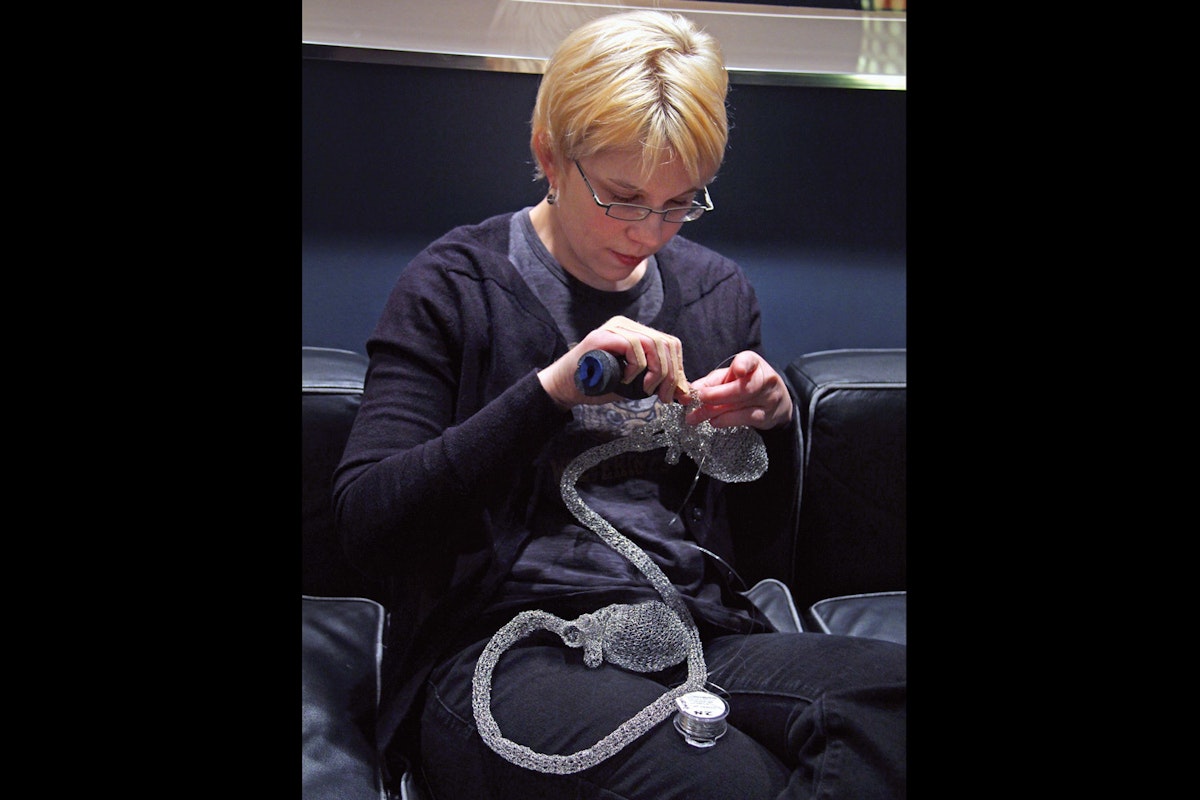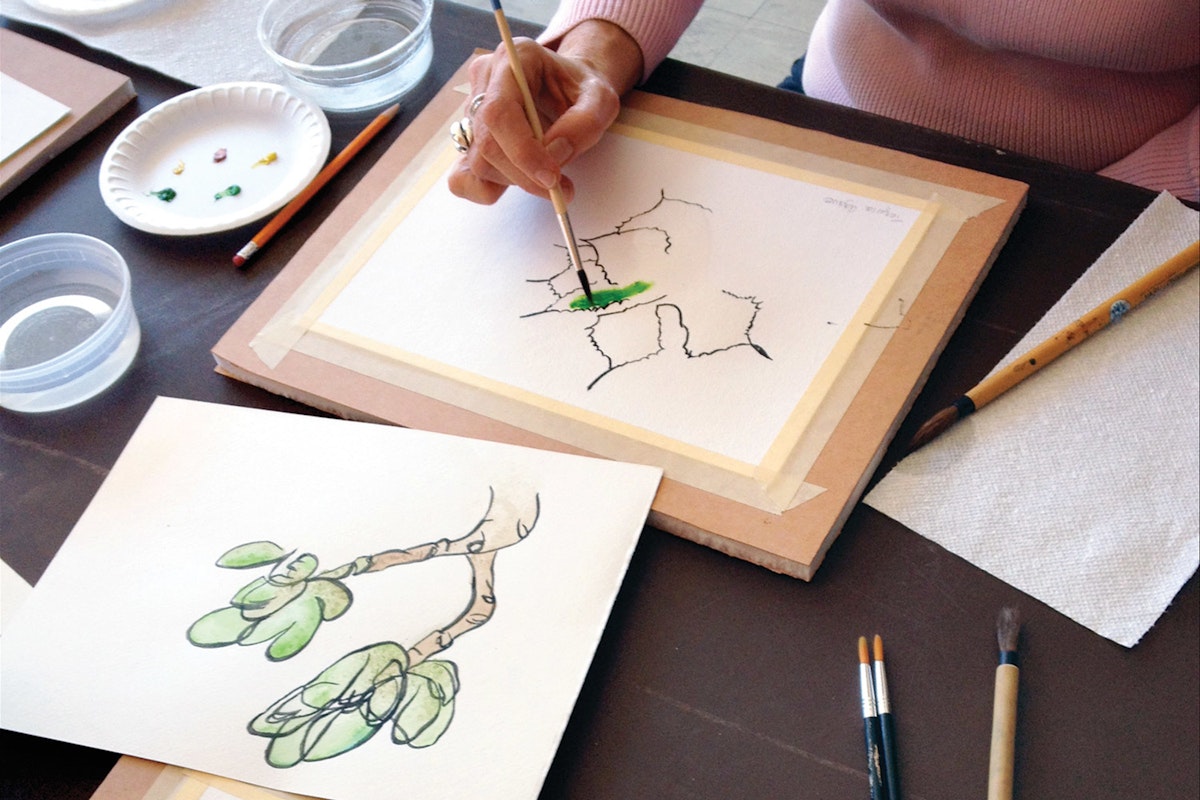Anne Mondro: The Role of Creative Work in Healthcare
Associate Professor Anne Mondro is not your average crocheter. Instead of wool, she carries a thin 26-gauge tinned copper wire.
In one of her recent projects, using the wire and a pair of crochet needles, she built sculptural forms in the shape of anatomical hearts. Anne spent about a year researching the anatomy of the heart, even spending time in the U-M anatomy lab and using 3D modeling software to figure out how to create the forms with her crochet needles.

In talking about her work, Anne explains, “This piece is very personal. I’ve been working with older adults with memory loss and their caregivers. It’s so intense to be a caregiver. When you care for a loved one, the two of you become intertwined. You take on their vulnerabilities but also their strengths. As I thought about that relationship, it was important that these forms be tied together somehow.”
In 2006, she developed a community engagement course titled Retaining Identity: the role of creativity in the healthcare setting, in which art and design students partner with persons with dementia. The course works with the U-M Geriatric Center to explore the potential of art to lift the human spirit in times of illness.
This past winter, students met weekly with the members of Silver Club Mild Memory Loss Program and the Elderberry (barely elder) group to do creative work together.
Anne says, “My studio work used to be separate from my teaching. But, recently, the two types of work have begun to inform one another. In fact, teaching social engagement classes brought me in touch with older adults with memory loss and their caregivers.”
The one-of-a-kind works created by Anne’s students and the elders were recently exhibited at Matthaei Botanical gardens. And, this past year, Anne Mondro received a University of Michigan grant to pursue interdisciplinary research studying creativity’s effects on caregivers and care recipients. She was in Amherst this summer pursuing research as the 2013 Scholar in Amherst recipient, which is funded by the Emily Dickinson International society: “I love Emily Dickinson’s work and the way she used pain and grieving as inspiration.”
Stamps students have clearly found inspiration from Anne’s course. One student, writing about the Retaining Identity course on the class blog, discusses its impact:
“Today we worked on a piece of art, but spent most of the time discussing our families, life experiences, and what comes next for me after college. However, for the first time at the end of our meeting, my Elderberry partner expressed to me her gratitude and love for the program we are a part of. She discussed how Tuesday afternoons have been the highlight of her past few months, and how she was so upset that we don’t meet more often and that our collaboration will soon be ending. She expressed how being creative and talking with me kept her mind off of the disease, and brought a lot of joy to her life. She also expressed how earlier today the group listened to music from her youth, and that it made her feel so calm, relaxed, and happy for the first time in a while.
In class, we have done many readings about the positive effects the arts have on patients with dementia, but to hear it firsthand was a remarkable and enlightening experience. It also inspired me to continue this kind of work in the future.”
